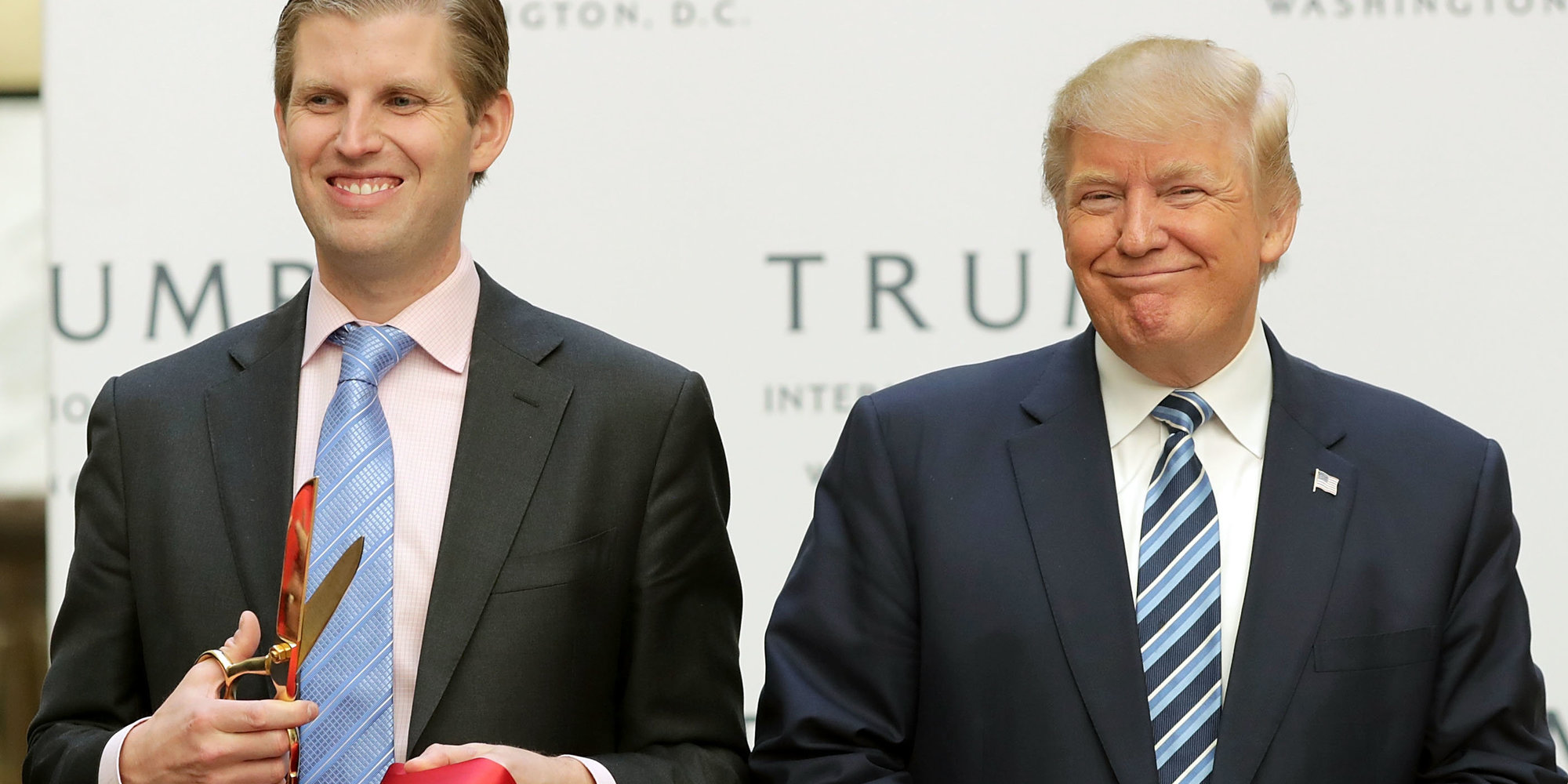Donald Trump Basically Says Conflicts Of Interest Aren’t Illegal If The President Has Them

WASHINGTON President-elect Donald Trump told The New York Times Tuesday that laws around conflicts of interest don’t apply to him, and he can simply keep running his businesses from the White House.
“In theory I could run my business perfectly and then run the country perfectly,” Trump said, according to tweets from New York Times reporters interviewing the president-elect Tuesday. “There’s never been a case like this.”
He is technically correct on both counts.
Federal conflict of interest laws do not apply to the president of the United States, and the obvious conflicts of interest created from his ownership of a global real estate empire are unprecedented in the nation’s history. Just because the federal laws mandating other federal officials to place their assets into a true blind trust run by an independent trustee do not apply to the president, does not mean that Trump’s conflicts of interest are not real.
Trump seems to think otherwise: “The law’s totally on my side, the president can’t have a conflict of interest.”
To take Trump seriously, and not literally, as his defenders like to do, he is saying: If the president does it, it’s not illegal.
The comments come just hours after Trump tweeted Monday night that people knew about his glaring conflicts of interest when they voted for him. It is therefore supposedly the media’s fault for reporting on them.
Trump’s global real estate empire presents the potential for massive conflicts of interest or their appearance as every U.S. government policy action could be directed or seen to be directed to benefit the president’s pocketbook. The United States government is supposed to act in the public interest of the people and not in support of one individual’s private benefit.
The list of the president-elect’s conflict of interest problems has grown over the two weeks since he won election.
Trump has claimed to place his three adult children, Ivanka, Donald Jr. and Eric Trump, in charge of his business, but also appointed them to the executive committee of his presidential transition, thus nullifying any separation between company and government.
He met with three of his Indian business partners one week after winning election. Trump is involved in at least five real estate deals in India.
His Argentinian business partners celebrated with him at his victory party and helped President Mauricio Macri get in touch with the president-elect after the election. Trump hopes to build an office tower in Buenos Aires.
Ivanka Trump, supposedly leading the Trump business independent of politics, also spoke with Macri on that call. She also appeared in a photograph with Japan Prime Minister Shinzo Abe when he met with the president-elect.
Laws against bribery most certainly apply to the president. Another thing that does is the emoluments clause of the Constitution. It states that no government official shall receive favorable payment from a foreign government, foreign government-owned company or foreign official without the consent of Congress. Trump owes millions in debt to the Bank of China, which is owned by the government of China.
He also owes hundreds of millions in debt to Deutsche Bank, a private German bank that is currently in settlement talks with the Department of Justice over its illegal mortgage abuses. He operates a hotel in Las Vegas currently in a labor dispute.
He owns a government lease for his Washington, D.C., hotel even though the lease states that it could not be held by a government official. The D.C. hotel held an event the week after his election to sell foreign diplomats and dignitaries on staying at its expensive luxury rooms to curry favor with the president-elect.
In the New York Times interview, Trump stated that the D.C. hotel is “probably a more valuable asset than it was before.” He bragged that his brand is “hotter” now that he is president.
On Monday, the Times reported that Trump spoke to British political figure Nigel Farage, the former head of the right-wing UK Independence Party, about opposing the construction of offshore wind farms in the UK. Trump has long protested the construction of offshore wind farms near his golf course in Scotland. He claims they would sully the view and lower his property value. Farage appears to have gone ahead and denounced those offshore wind farms.
“I might have brought it up,” Trump sheepishly admitted in the Times interview.
He added, though, “My company’s so unimportant to me relative to what I’m doing.”
“I don’t want to influence anything.”
Read more: http://www.huffingtonpost.com/entry/donald-trump-conflict-of-interest_us_58349547e4b09b6055ff367d